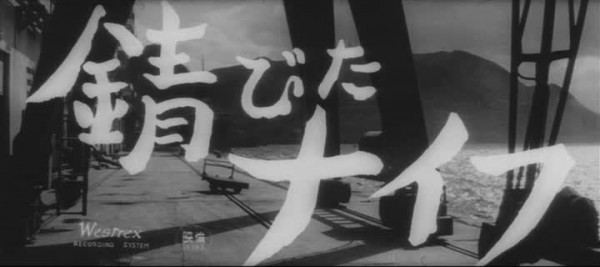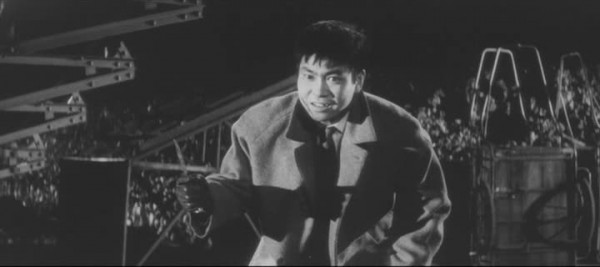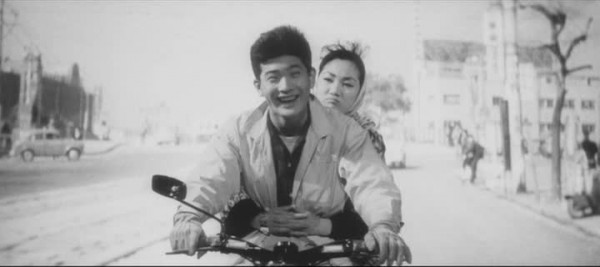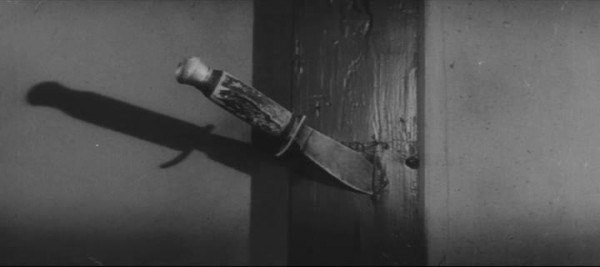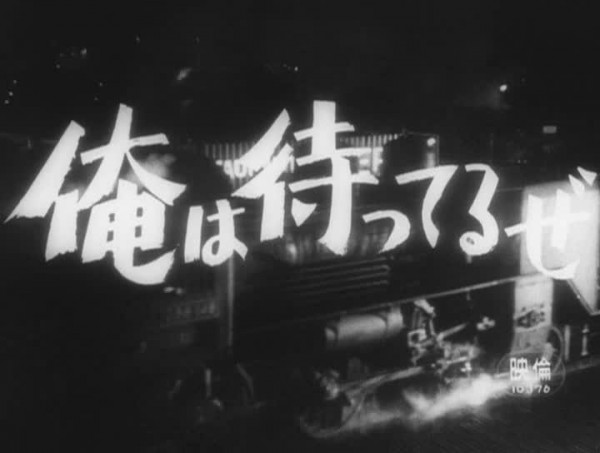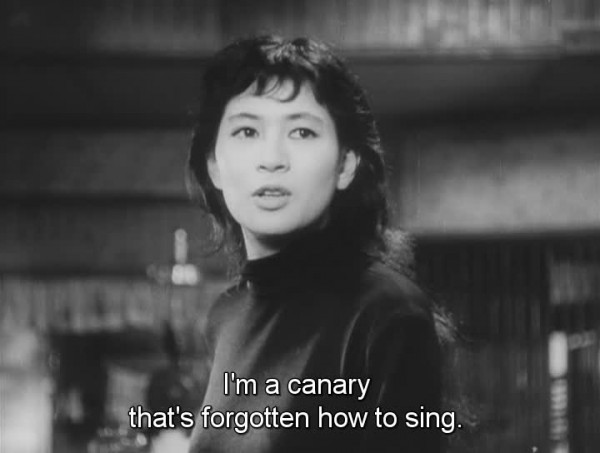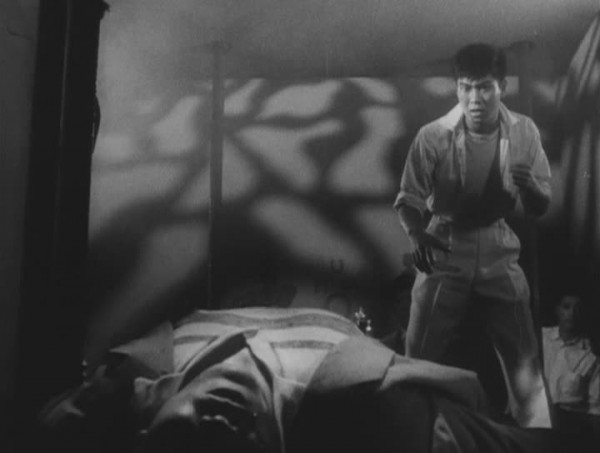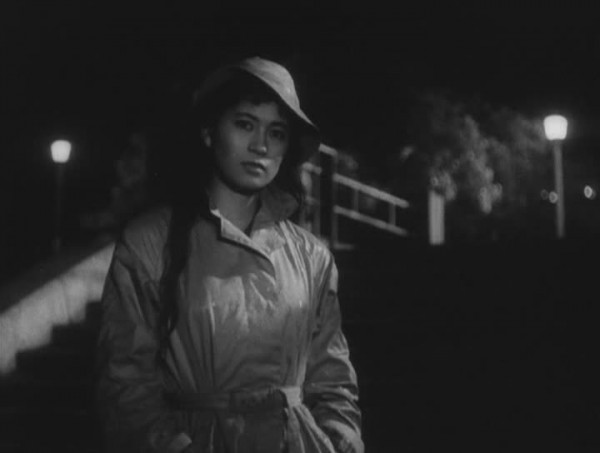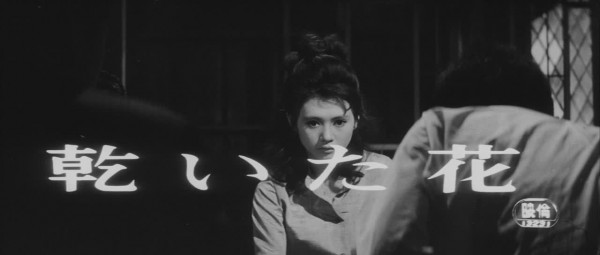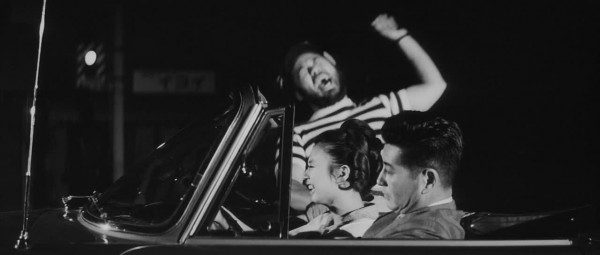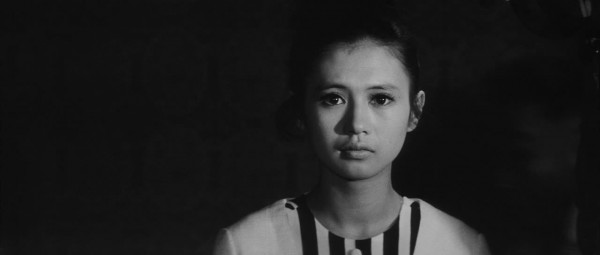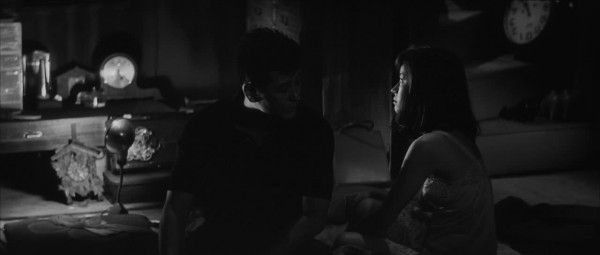Perfect Game
aka 完全な遊戯 aka Kanzenna Yugi

1958![]()
Based on the short story by Shintarô Ishihara
Screenplay by Yoshio Shirasaka
Directed by Toshio Masuda
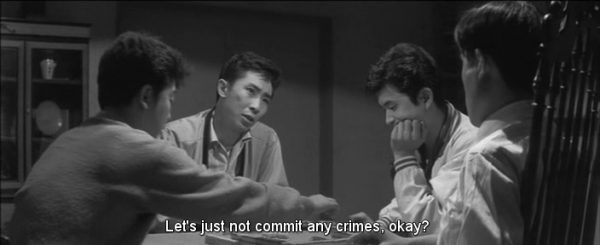
This time we are beep-beep backing the truck up to 1958, where the Nikkatsu flicks were more disaffected youth culture than the thrillers and borderless action the genre will evolve into soon enough. Perfect Game still has plenty of strong characters, bad choices, and dangerous situations even with the slow leisurely pace the film begins it’s scheme setup with. The protagonists are introduced, their want of fast and easy money and willingness to bend the rules (past the breaking point!) to get said money. Like many youth they also think themselves invincible, the next score just being another quick job that will never have any bad repercussions. But if that were the case, then we wouldn’t have a movie, now would we? The fact that the protagonists all come from affluent families but still succumb to the temptations of their excesses makes this a solid Sun Tribe feature.

I love Nikkatsu’s films but I have to do them in spurts as you can only take so much bleak ruination of tragic endings before you want to watch Godzilla punch some monsters or Captain America punch some monsters (or Nazis, same thing!) Director Toshio Masuda (Rusty Knife, Red Pier) turns what could have easily been an ordinary film into a memorable tragic tale thanks to strong characters and skillfully constructed scenes that highlight the buildups to tragedy as the characters compromise their values more and more.
We got ourselves a quartet of young college students who want a bit of excitement in their lives, and gambling away the meager allowance their parents give them just ain’t cutting it. Mastermind Toda (Yasukiyo Umeno) is a straight-faced liar and owes his girlfriend Meiko (Mari Shiraki – Underworld Beauty) – the Mama of a hostess club – a large sum of money. There is also Soji Oki (Akira Kobayashi – in so many films he has a tag), who is usually called So-chan, he is the pretty one that makes the girls swoon. Jiro Akitani (Shirô Yanase) lies to both of his parents about his money issues but can manipulate his successful father into coughing up dough as needed. And finally Toshio, who I’m struggling to remember anything significant about beyond just being part of the gang. Sorry, buddy, get a personality!






